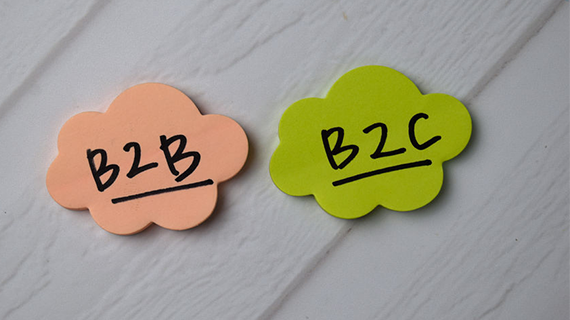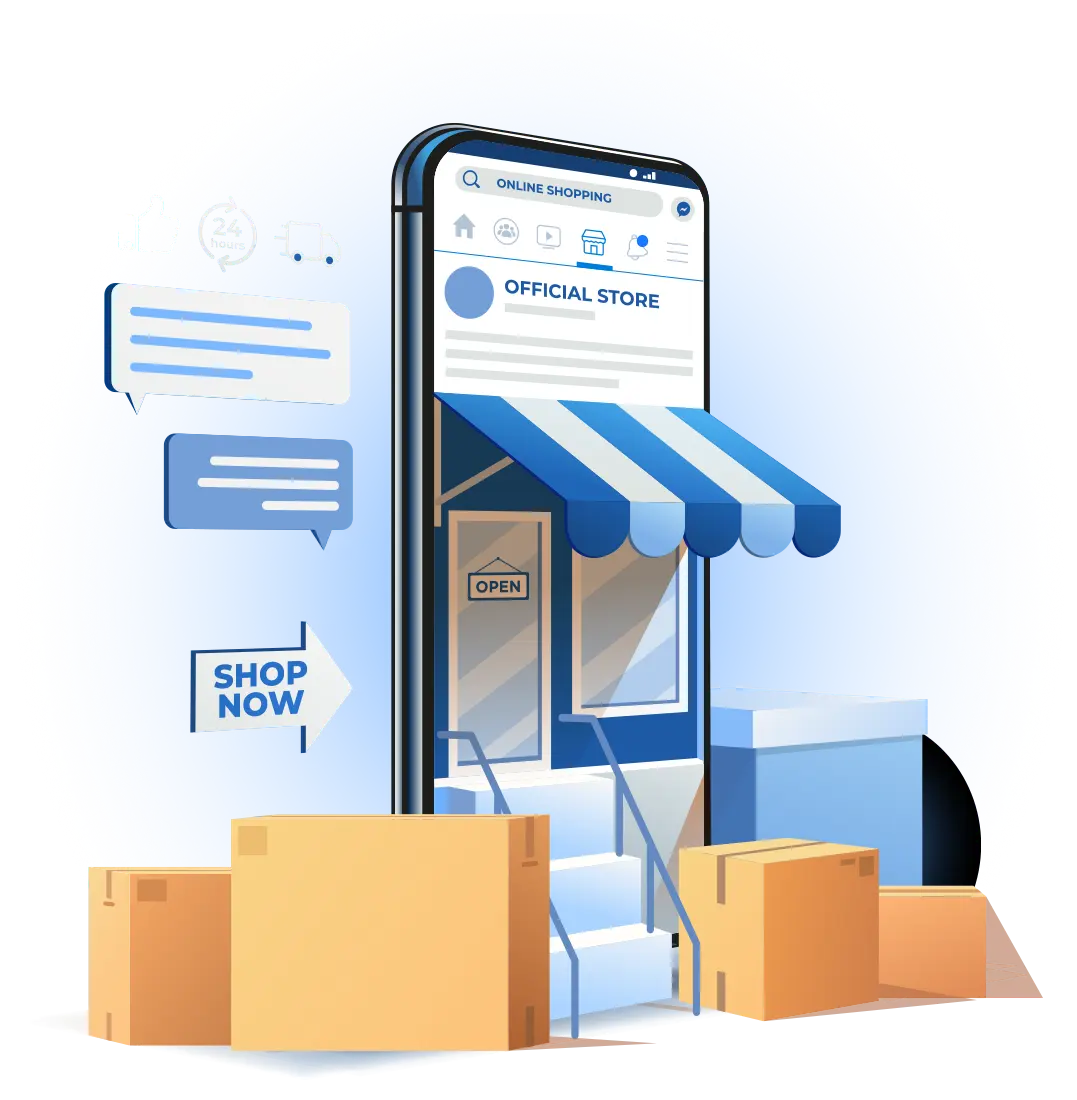 Most people know the differences between business-to-business (B2B) sellers and business-to-consumer (B2C) retailers. The most obvious is consumer retailers serve personal interests and needs, while B2B companies provide work-related products and services. When it comes to shopping online, the gap only widens.
Most people know the differences between business-to-business (B2B) sellers and business-to-consumer (B2C) retailers. The most obvious is consumer retailers serve personal interests and needs, while B2B companies provide work-related products and services. When it comes to shopping online, the gap only widens.
Purchases
Online shopping can be a fun activity when you’re looking for products to enhance your lifestyle, feed a need, or just make you happy. But when shopping for products is your job, “fun activity” is probably the last thing that comes to mind. B2B buyers are tasked with maintaining inventory, finding specific parts from a sea of options, and ensuring they have all the right components to complete a job. At the same time, they are negotiating pricing, working out billing options, and making sure products arrive when they need them.
Behaviors
Consumers tend to make “one-and-done” types of transactions. They find the product that meets their needs, and, in a matter of a few clicks, place and pay for their order. They may not necessarily order from the same retailer again, but they will make regular small transactions like this as part of their purchase cycle. B2B buyers, on the other hand, require more time to make a purchase. It’s not because they’re shuffling their feet; their buying cycle involves a lot more product research, high-ticket items, and approvals before they can make any purchases. A key difference between B2B and B2C is that B2B companies see fewer sales transactions than typical retailers, but they generate more sales due to the higher value of items and bulk quantities sold.

Digital commerce breakdown
The advent of B2B-specific eCommerce platforms – and the tools that integrate with them – has made online buying a less formidable task for these professionals. While it may never be as fun as shopping for Halloween costumes for your pet, a digital branch is a much more convenient and efficient way for buyers to do business with companies.
Wholesale distributors, manufacturers, and specialty hardgoods retailers can’t meet B2B buyer expectations with a one-size-fits-all digital commerce platform. Why? We break down the multiple reasons below, but the short answer is because B2C eCommerce platforms don’t have the functionality or flexibility to serve B2B customers and sustain a wholesale business. Let’s explore the differences between B2B and B2C eCommerce.
- Customer accounts
Compared to B2B buyers, retail customers are a breeze. Each consumer has his own account making it easier for retailers to manage customer orders, payments, and shopping behaviors. Wholesalers have customer accounts with multiple employees/buyers on each account, as well as different permission levels for each buyer. Some employees may be able to build a shopping cart, but then someone else in their organization must approve the order. Others, like accounts payable team members, may only have access to account information like invoice history and order status but cannot build carts or buy.
How B2B eCommerce helps: Sophisticated digital branches have inbuilt functionality that allows B2B customers to designate user roles for each team member, including the coveted Admin role for those who create and edit all users, as well as assign their permissions. This handy customer tool keeps accounts payable in the loop and helps an organization monitor inventory and spending.
- Product catalogs
Another difference between B2B and B2C businesses is with their product catalogs. While retailers display their entire product catalog to the masses, distributors and manufacturers are more selective as to what products they show online. For instance, they may only want to display a portion of their product catalog to anonymous site visitors. However, as incentive to register with them, they give logged-in customers visibility to their entire catalog – or at least a broader selection of items from which they are approved to buy. Some B2B companies also sell a subset of their items on third-party marketplaces to gain added brand exposure and revenue. In order to manage multiple catalogs for different channels or audiences, they need a flexible platform.
How B2B eCommerce helps: A dedicated product information management (PIM) system allows B2B organizations to build and maintain separate catalogs for their different needs, whether it be their eCommerce storefront, online marketplaces, or print catalogs. With a PIM-centric commerce solution, businesses have total control over their items.
- Types of orders
Most DIY consumers need only a couple of items to complete a basic home repair like fix a leaky faucet. But it takes more than just a replacement valve or pipe wrench for B2B buyers to complete a job. Their purchases include components to build entire systems and solutions for major job applications. Some equipment can have dozens – if not hundreds – of parts and pieces, ranging from large fan motors to minute screws. Custom configurations also come into play, which add to the complexity of B2B purchases and illustrate a prime difference between B2B and B2C.
How B2B eCommerce helps: To serve complex product needs, many B2B platforms include a Request-for-Quote (RFQ) tool which allows potential buyers to fill out an online entry form with their different product requirements. Once the form is completed, it is sent to a sales team member for a quote. For established customers, salespeople can use Configure-Price-Quote (CPQ) software. CPQ manages the rules and pricing around a customer’s product catalog so that sales can build custom solutions and generate quotes much more quickly and accurately.
- Product expertise
Unlike online retailers, wholesale distributors offer customers an invaluable asset: deep product knowledge. Their skilled employees can consult with customers to find the right products for their needs and provide technical support. Plus, when their digital commerce site includes enriched product content like manuals, spec sheets, videos, and substantial attributes, both sales and customer service teams can reference the site to provide immediate answers to buyer questions.
How B2B eCommerce helps: Enriched content is a clear differentiator in the wholesale distribution marketplace. It helps businesses stand out from the competition and turns their eCommerce site into a trusted resource for both employees and buyers. Product content service providers like Unilog are experts at capturing the latest product information and transforming it into rich content that attracts buyers.

- Pricing
Pricing also makes a difference between B2B and B2C. Retailers generally display standardized pricing for their products with no room for negotiation. Not so for B2B sellers. They offer customer-specific pricing based on their spend, longevity as a customer, product types, and more. In order for each buyer to see their contracted pricing online, a B2B company’s eCommerce platform must be able to communicate with their ERP and have a customer portal. Once a customer logs in, their product catalog and contracted pricing are shown, along with product availability. Contracted pricing visibility is integral to a company’s success, which is why only platforms built specifically for B2B needs can pull it off.
How B2B eCommerce helps: System integration is a critical requirement of today’s digital commerce platforms. The software must have a robust API tool set that can connect various ERP systems, payment gateways, shipping carriers, and other third-party applications to feed data in real time.
- Order methods
Armed with just the Internet and a credit card, almost any buyer can make a purchase via a website or mobile app. In the B2B marketplace, though, larger quantities, higher-ticket items, and recurring purchases necessitate more transaction options. Many businesses still rely on a purchase order (PO) system to monitor inventory management and payment tracking when they call, e-mail, or even fax their order to their sales rep. Some B2B buyers prefer using a payment gateway for more secure and convenient transactions, while others choose to place orders directly through their own procurement system using a punchout tool integrated with the businesses’ eCommerce software.
How B2B eCommerce helps: To respond to industry, technology, and customer changes, businesses need a digital branch with deep integration capabilities that can expand and evolve with the marketplace. Payment gateways, punchout catalogs, and even a buy online, pick up in store (BOPIS) option attract more buyers and build customer loyalty.

Present the right platform to the right buyers
The core needs of consumers and buyers may be the same – like digital shopping options, more convenience, and a great user experience – but a standard eCommerce website can’t provide the additional functionality that B2B buyers require. Those businesses who fail to meet these needs will fall behind the pack. Now that you know the difference between B2B and B2C eCommerce platforms, you can make an educated decision as you search for a system to meet your business and customer needs.

If you’re ready to grow your digital branch, look to Unilog. Our B2B eCommerce platform is a powerful, affordable solution for growth-oriented companies that want to integrate their offline and online channels and build a strong digital presence. Out of the box, our customers get a mobile-friendly design, built-in PIM, configurable site search, advanced shopping cart with multiple checkout options, and complete integration with their ERP system and other applications. Plus, there are options to add a mobile app, punchout capabilities, and advanced eCommerce site analytics.
Together with our content enrichment services, Unilog delivers an all-in-one solution that helps businesses build and maintain a competitive foothold. Reach out to a Unilog team member today for a complimentary demo of our platform.
